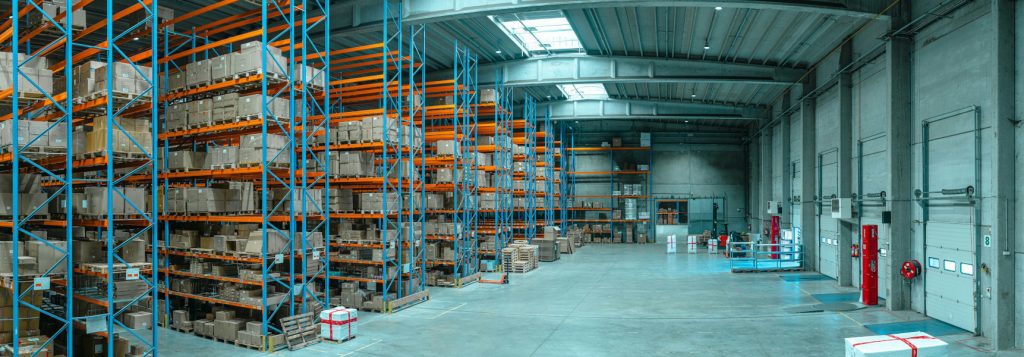
The logistics industry is the backbone of global trade, ensuring goods are transported efficiently, legally, and cost-effectively across borders. From freight forwarding to customs clearance, transport to warehousing, “logistics” offers a wide range of rewarding career paths.
There are many aspects of logistics occupations to consider, including the technical skills required, and different industry segments.
Being interested in logistics occupations, you’ll find a variety of roles to suit different skills and preferences. Looking for a stable, fast-paced, and well-paying career? Logistics could be exactly what you’re looking for.
An Introduction to the Logistics Industry
The logistics industry is a dynamic and essential sector that keeps the world’s supply chains running smoothly. At its core, logistics involves the careful planning, coordination, and execution of moving goods, materials, from raw materials all the way to the end customer. This process requires a wide range of logistics jobs and careers, from logistics coordinators to supply chain managers, each playing a vital role in ensuring efficiency and reliability.
As global trade expands and customer expectations rise, the logistics industry continues to evolve, embracing new technologies and innovative solutions. This creates exciting opportunities for logistics professionals who are eager to solve problems and drive progress. With strong job growth and a constant demand for skilled workers, the logistics sector continues to offer plenty of career paths to explore, making it an excellent choice for those seeking a stable and rewarding future.
The Supply Chain: Why You Get Your Amazon Order Tomorrow

Ever wondered how something you order from Amazon turns up on your doorstep the very next day? It’s not magic. It’s the supply chain doing what it’s supposed to do — and when it works well, it’s a beautiful thing.
The supply chain covers everything: getting raw materials, manufacturing the product, warehousing it, shifting it through transport networks, and finally delivering it to your front door. Every step needs to run like clockwork.
As soon as you click “Buy Now,” people behind the scenes get moving. Stock’s picked and packed, trucks are loaded, delivery routes are mapped — and it’s all done with the goal of getting your order out the door and to you without delay. That takes proper planning, smart systems, and people who know what they’re doing.
Logistics isn’t just moving boxes around. It’s managing inventory, dealing with customs, sorting warehouse space, and solving problems before they become expensive. The fact that you can order a mobile phone at 9 PM and have it in your hand by lunchtime the next day? That’s not luck — that’s logistics.
So next time your parcel lands on your doorstep like clockwork, remember there’s a whole chain of experts making it happen. And if you’re thinking about getting into this game, there’s never been a better time to learn the ropes.
Want a Career in Logistics? Get Trained, Get Practical, Get Moving
If you want a career in logistics — a proper one where you’re not stuck pushing paper — you’ve got to learn how the industry really works. And that starts with getting practical knowledge, not just theory from a textbook.
You don’t need a fancy university degree to break into logistics. Sure, if you want to work in big corporate management later down the line, a degree in supply chain management or business might help. But most people start with real-world training, get stuck in, and learn how to get things done. That’s where the jobs are — in knowing how to solve problems, deal with customs, manage shipments, and keep the supply chain running smoothly.
That’s exactly why we created the ABTS® International Trade Mastery Programme — to teach you what employers actually want. No waffle, no endless theory. Just the essentials you need to land a job and get ahead.
If you’re already working in the industry, there’s still plenty of opportunity to climb the ladder. Companies want people who understand the job, who can deliver under pressure, and who’ve had proper training. Getting recognised qualifications, like those from ABTS or others like CSCP or CLTD, can put you ahead of the pack.
At the end of the day, logistics moves fast — and if you’re not learning, you’re falling behind. So if you’re serious about a future in international trade or freight forwarding, stop thinking about it and get trained.
👉 Find out more about the ABTS training programme here.
Work Experience and Professional Development: Get Stuck In and Keep Moving Up
Let’s be honest, in logistics, experience matters more than fancy titles. You can read all the theory you like, but until you’ve had to reroute a shipment stuck in customs or sort out a freight delay on deadline, you haven’t really learned the ropes.
That’s why I always say: start at the bottom. Get a job as a logistics coordinator or demand planner. You’ll see the moving parts of the supply chain, feel the pressure, and learn how to solve real problems. That’s the kind of experience employers look for when they’re hiring for the bigger jobs — logistics manager, supply chain lead, head of operations.
But don’t stop there. Professional development is key. Attend trade workshops. Learn from people who’ve done it. And if you’re serious, get trained properly, like with the ABTS® International Trade Mastery Programme. It’s built for people who want to know how things work and why, not just sit through slideshows and jargon.
You want to build a career? Combine solid work experience with practical, real-world training, and you’ll be miles ahead of the crowd. Want to know where to begin, even if you’ve got no experience yet?
Check out our guide:
👉 How To Get A Job In Logistics With No Experience
1. Logistics Director / Operations Manager
At the very top of the logistics career ladder are roles like Logistics Director or Transport Operations Manager. These senior professionals oversee the logistics department and manage teams responsible for various logistics functions. They are accountable for the movement, storage, and transportation of goods, managing people, processes, and performance across departments.
They make key decisions that impact costs, customer satisfaction, and the smooth running of operations. Leading a team effectively is essential to achieving operational goals and optimizing processes. Whether it’s a major retail chain, an e-commerce business, or a freight forwarding company, these leaders are crucial to business success.
💰 High earning potential: According to a recent Sky News report, Directors in logistics, warehousing, and transport are among the top five highest-paying jobs in the UK, with an average salary of £72,117.
To put that into perspective, barristers and judges rank 16th, earning just £52,416 per year on average — despite the fact it can take 6–7 years and up to £127,000 in education and living costs to qualify, including law school, the Bar course, and Pupillage.
Compare that to the ABTS® International Trade Mastery Programme, which gives you practical, job-ready skills to start a career in international trade — all for just £1,999, with the flexibility to complete it in a month of part-time study.
Of course, reaching a senior director role takes time and experience but for those who are committed, driven, and willing to climb the ladder, the financial rewards are exceptional.
2. Freight Forwarder

Freight forwarders are the organisers of the global shipping world. They arrange the transport of goods on behalf of clients, booking space with carriers for various modes of transport such as ships, planes, trucks, and trains, completing shipping documents, and handling customs.
Key skills: Organisation, attention to detail, problem-solving, and communication.
If you enjoy coordinating projects and speaking with people worldwide, this is a fast-paced, varied role with strong career progression.
📘 If you’d prefer to be your own boss rather than work for someone else, take a look at our blog on How To Start Your Own Freight Forwarding Business — a practical guide to getting your own freight company off the ground.
3. Customs Broker / Clearance Agent
Customs clearance agents handle the legal side of international trade. They ensure goods pass through customs with the correct paperwork, duties paid, and in line with all regulations. Customs brokers also address challenges related to customs regulations and documentation, helping to resolve issues that may arise during the clearance process.
Key skills: Knowledge of tariff codes, attention to detail, and experience with customs software.
With Brexit and new global trade agreements constantly reshaping regulations, customs agents are in hot demand.
4. Supply Chain Manager
Supply chain managers oversee the entire journey of a product — from sourcing and manufacturing to distribution and delivery. They plan logistics strategies and coordinate with sales teams to align supply with demand. Analyzing sales data is crucial for effective supply chain planning, as it helps forecast demand and optimize inventory levels. They also analyse costs, manage supplier relationships, and ensure efficiency.
Key skills: Strategic thinking, leadership, systems management, and negotiation.
5. Warehouse Operative / Manager

Warehouses are essential for the storage and movement of goods. Operatives are responsible for picking, packing, and labeling items, ensuring goods are properly prepared for transportation and stored securely. Packing is a key responsibility that helps prevent damage and supports efficient supply chain operations. Managers oversee warehouse layout, safety, staffing, performance, and the overall management of storage. Using the right equipment is crucial for efficient warehouse operations and the safe handling of goods.
Key skills: Time management, physical stamina, and a strong grasp of warehouse systems.
This is a great entry point into the industry — many senior logistics professionals began on the warehouse floor.
6. Transport Planner
Transport planners design efficient routes for goods, considering costs, weather, regulations, and time. They coordinate with drivers, shipping lines, and customers to keep freight moving. Transport planners also work closely with inventory teams to synchronize delivery schedules and stock levels, ensuring efficient logistics operations.
Key skills: Analytical skills, geographical knowledge, and quick decision-making.
7. Procurement / Purchasing Officer
Procurement officers source the materials and services a company needs, negotiating contracts and maintaining quality standards. In logistics, this often means dealing with packaging, transport, or warehousing services. Procurement officers often collaborate with related departments such as logistics and finance to ensure smooth operations.
Key skills: Commercial awareness, supplier vetting, and negotiation.
8. Logistics Coordinator / Administrator
Coordinators support the day-to-day operations by tracking shipments, liaising with suppliers and customers, and managing paperwork. This role offers insight into every stage of the supply chain.
Key skills: Strong administration, multitasking, and attention to detail.
Why Logistics Is a Career Worth Considering
✅ High demand – Every product we use depends on logistics. It’s not going anywhere, and employment opportunities in this field are projected to grow steadily.
🌍 Global reach – Work with international clients and travel opportunities.
📈 Career progression – Clear pathways from entry-level to senior management.
💷 Strong salaries – Competitive pay, especially as you gain experience.
🎓 Education requirements vary – Some logistics roles require a degree or specific qualifications, while others value practical training and experience.
How to Start Your Logistics Career
- Train smart – Our ABTS® training provides hands-on knowledge employers look for.
- Start small – Entry roles like admin assistant or warehouse operative are great first steps.
- Build experience – Learn every part of the process and move up fast.
Looking to enter the industry? Don’t miss this helpful read: 👉 How To Get A Job In Logistics With No Experience
Conclusion: The Opportunity is Yours
Logistics keeps the world moving — and it’s full of career opportunities. Whether you’re just starting out or looking to change paths, now is a great time to enter this fast-moving industry.
As the logistics sector evolves, sustainability is becoming increasingly important, shaping the future of logistics occupations and driving demand for professionals who can support environmentally conscious operations.
Train with the experts, get practical knowledge, and move into a career that pays well and grows with you.
